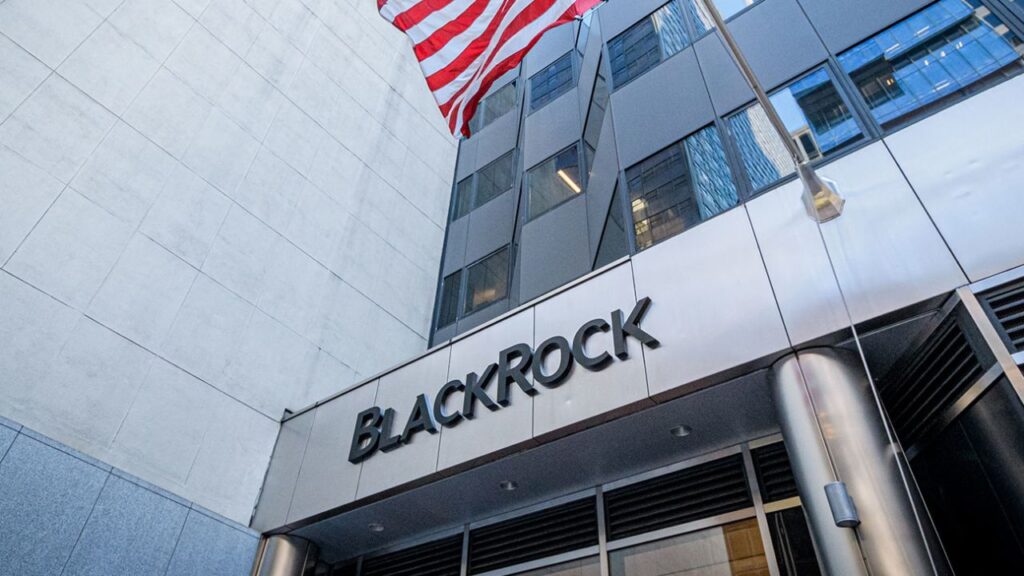Market maker Citadel Securities recommended that the SEC impose stricter rules on decentralized finance platforms offering tokenized stocks.
The firm submitted a letter to the SEC on Tuesday, arguing that DeFi developers, smart-contract coders, and self-custody wallet providers should not receive “broad exemptive relief” for facilitating trading of tokenized US equities.
Citadel claimed that these platforms likely fall under the definitions of an “exchange” or “broker-dealer” and must comply with securities laws if offering tokenized stocks.
Regulatory Concerns and Crypto Backlash
The firm warned:
“Granting broad exemptive relief to facilitate the trading of a tokenized share via DeFi protocols would create two separate regulatory regimes for the trading of the same security.”
“It would be the exact opposite of the ‘technology-neutral’ approach taken by the Exchange Act.”
The letter was submitted as part of the SEC’s request for feedback on tokenized stock regulation.
It quickly drew strong reactions from the crypto community.
Lawyer and Blockchain Association board member Jake Chervinsky remarked on Thursday:
“Whoever thought Citadel would be against innovation that removes predatory, rent-seeking intermediaries from the financial system?”
He added:
“Oh, right, literally every single person in crypto.”
Industry Voices Warn Against Overreach
Uniswap founder Hayden Adams said:
“It makes sense the king of shady TradFi market makers doesn’t like open source, peer-to-peer tech that can lower the barrier to liquidity creation.”
Summer Mersinger, CEO of the Blockchain Association, criticized the approach, stating:
“Regulating software developers as if they were financial intermediaries would undermine US competitiveness, drive innovation offshore, and do nothing to advance investor protection.”
She urged the SEC to focus on actual intermediaries who stand between users and their assets.
SIFMA’s Position
The Securities Industry and Financial Markets Association echoed concerns over DeFi carve-outs.
While supporting innovation, SIFMA stressed that tokenized securities must adhere to the same investor protections applied to traditional finance.
Citadel had previously told the SEC’s Crypto Task Force in July that tokenized securities must provide “real innovation and efficiency to market participants, rather than through self-serving regulatory arbitrage.”
The CME Group has introduced a broad set of cryptocurrency benchmarks intended to bring more structure and transparency to digital-asset markets.
The new collection of indices offers pricing references and volatility metrics for major tokens, giving institutional traders access to tools similar to those long used in equities, commodities and other financial markets.
CME confirmed the suite covers leading cryptocurrencies including Bitcoin, Ether, Solana and XRP.
Volatility Benchmarks Take Center Stage
A key element of the rollout is the addition of Bitcoin volatility benchmarks designed to measure expectations of future price swings.
These benchmarks track implied volatility drawn from Bitcoin options markets, including contracts tied to Micro Bitcoin futures.
CME describes the product as serving a similar function to the VIX in equity markets, offering an estimate of how much movement traders anticipate over the next 30 days.
While the volatility benchmarks are not tradable products on their own, they provide a unified reference point that traders can use for risk management, options pricing and portfolio adjustments.
Why the New Benchmarks Matter
Volatility indices play a major role in global financial markets, and their introduction to crypto reflects the maturity of digital-asset derivatives.
They allow analysts and traders to quantify uncertainty more precisely.
They help identify when markets may be preparing for sharper swings.
And they underpin advanced strategies that depend on expectations of future volatility rather than price direction.
The CME benchmarks are intended to standardize these processes in crypto markets, which until now have used fragmented data from multiple exchanges.
Institutional Activity Continues to Grow
Demand from institutions has expanded steadily in recent years as crypto derivatives gained traction alongside the growth of spot Bitcoin exchange-traded funds.
Even before the ETF era, institutions were active in crypto futures and options, but the arrival of regulated spot products has accelerated interest in complementary hedging tools.
CME reported that the third quarter delivered a significant milestone as combined futures and options trading volume across its crypto products surpassed $900 billion.
Average daily open interest reached more than $31 billion during the period, marking a fresh record and signaling consistent capital participation.
Open interest represents contracts that remain active rather than closed or rolled over, making it a useful measure of conviction and liquidity.
Broader Derivatives Market Expands
Institutional derivatives activity also broadened beyond Bitcoin.
Ether and Micro Ether futures saw substantial increases in trading volume, suggesting a wider set of market participants are engaging with alternative crypto assets through CME-regulated products.
The growth helps reinforce the need for standardized reference rates that align with the level of institutional involvement.
A Step Toward Market Maturity
CME’s move reflects a long-term trend toward the professionalization of crypto trading infrastructure.
As more institutions incorporate digital assets into multi-asset strategies, demand grows for familiar analytical tools that reduce uncertainty and support risk-adjusted decision-making.
The new benchmarks offer a consistent measurement framework that may help strengthen confidence in crypto derivatives as the asset class continues evolving.
Japan’s government and ruling coalition have signaled support for a sweeping reform of the nation’s crypto tax system, backing plans to cut the maximum tax rate on digital-asset profits to a flat 20%.
The changes, originally proposed by Japan’s Financial Services Agency in November, now have political momentum heading into 2026.
Under the plan, the FSA intends to introduce a bill during the regular Diet session in early 2026.
The shift would bring crypto taxation in line with equities and investment trusts, which already benefit from a uniform 20% rate.
Current System Burdens Crypto Traders With High Rates
Under existing rules, profits from crypto trading are categorized as “miscellaneous income,” meaning individuals and businesses face income-based taxation.
The rate can range from as low as 5% to as high as 45%, depending on annual earnings.
High-income earners may also be subject to an additional 10% inhabitant tax, pushing the total burden even higher.
This system has long been criticized for discouraging both investment and innovation in Japan’s digital-asset sector.
By contrast, gains from equities and investment funds are treated separately from income tax and taxed at a consistent 20%.
Proposed Changes Aim to Boost Domestic Crypto Activity
Nikkei Asia reported that the proposed reduction is part of a broader plan to place crypto assets within a “solid investor-protection framework” while aligning them more closely with other financial products.
The reforms are expected to increase domestic participation by removing one of the biggest deterrents facing retail and institutional investors.
If passed, the new structure could make Japan one of the more competitive major markets for digital-asset investing.
FSA Bill Targets Oversight, Transparency and Market Integrity
Alongside the tax reduction, the FSA’s upcoming legislation will include new rules aimed at tightening market oversight.
These measures will reportedly address the handling of non-public information, enhance disclosure requirements and introduce safeguards to reduce risks in crypto trading.
The goal is to strengthen regulatory protections while allowing the industry to grow under clearer, more favorable conditions.
Lobbying Efforts Show Signs of Paying Off
For nearly three years, the Japan Blockchain Association has pushed for a flat-rate tax structure for crypto assets.
In 2023, the group published a formal letter urging the government to adopt a 20% rate similar to those used for other investments.
“This letter requests a review of tax on crypto assets, which is the biggest hurdle for companies operating Web3 businesses in Japan and a disincentive for the public to actively own and use crypto assets,” the letter reads.
While the FSA has not confirmed whether the association’s lobbying directly influenced its decision, the agency began publicly considering reforms in late 2024.
Industry Prepares for a New Phase of Growth
If the legislation passes in 2026, Japan’s crypto market may experience a substantial increase in trading activity.
Lower taxes, combined with stronger investor protections, could attract both domestic users and international companies seeking regulatory stability.
The reform would represent one of Japan’s most significant steps toward modernizing its financial landscape and reaffirming its position as a major hub for blockchain innovation.
Bitcoin may have significant upside from its current levels, according to crypto researcher André Dragosch, as the asset appears out of step with the forward macroeconomic outlook.
“The last time I saw such an asymmetric risk-reward was during COVID,” Dragosch, head of research at Bitwise Europe, said in a post on X on Friday.
He was referring to March 2020, when global pandemic fears caused Bitcoin’s price to tumble from around $8,000 to below $5,000.
Current Setup Mirrors Extreme Past Conditions
Dragosch highlighted that Bitcoin’s current conditions mirror the extreme risk-reward scenario seen during the early COVID period.
He noted that the cryptocurrency is “pricing in the most bearish global growth outlook since 2022,” pointing to aggressive quantitative tightening from the US Federal Reserve and the collapse of crypto exchange FTX.
“Bitcoin is essentially pricing in a recessionary growth environment,” Dragosch said, adding that the asset has already accounted for “a lot of the bad news.”
US Treasury Secretary Scott Bessent reassured citizens on Sunday that the United States is not at risk of entering a recession in 2026.
Bitcoin Struggles Despite Market Hopes
Bitcoin’s price has underperformed relative to market expectations over the past month.
After hitting all-time highs of $125,100 on October 5, the cryptocurrency entered a downtrend following a $19 billion liquidation event on October 10.
This sell-off occurred shortly after US President Donald Trump announced 100% tariffs on Chinese goods, further impacting market sentiment.
Bitcoin fell below the psychological $100,000 level on November 13 and has yet to reclaim it.
The price briefly dipped under $90,000 on November 20, though it quickly rebounded above this level a few days later.
According to CoinMarketCap, Bitcoin has declined 17.33% over the past 30 days.
Continued Adoption
Despite the pullback, Bitcoin and other cryptocurrencies are continuing to be adopted in the real world. For example, cryptocurrencies are continuing to be used for secure withdrawals in crypto casinos – and this adoption is unlikely to slow down even in the face of a bear market.
Even countries such as the UAE, where gambling has long been banned, are starting embrace online casinos and blockchain-based gambling platforms. For instance, the GCGRA recently authorized Play 971 as the first online casino in the UAE.
Optimism from Macro Drivers
Dragosch believes global growth is likely to recover, supported by the effects of preceding monetary stimulus.
He compared the current environment to the post-COVID period, suggesting similar macro forces could support growth well into 2026.
“I genuinely think we’re staring at a similar macro setup right now,” Dragosch said.
Market Participants Eye a Rebound
Not all crypto investors are convinced that a prolonged bear market has begun.
Crypto trader Alessio Rastani told Cointelegraph that the recent price drop may not indicate the start of a long-term downturn.
Instead, Rastani argued that historical data points to recurring setups that have preceded strong rallies roughly 75% of the time.
Meanwhile, BitMine chair Tom Lee expressed confidence that Bitcoin could reclaim the $100,000 mark by the end of the year.
He added that the cryptocurrency might even reach new all-time highs, reflecting ongoing optimism among certain market participants.
A malicious Google Chrome extension has been quietly siphoning funds from Solana users by attaching fraudulent fees to every transaction executed through its interface.
Cybersecurity firm Socket published a report on Tuesday outlining the behavior of the extension, known as “Crypto Copilot.”
The software allows users to trade Solana directly from their X (Twitter) feed, presenting itself as a convenient shortcut for active traders.
Behind the scenes, however, the extension manipulates every swap.
Socket found that the extension “injects an extra transfer into every Solana swap, siphoning a minimum of 0.0013 SOL or 0.05% of the trade.”
Unlike typical wallet-draining malware that attempts to steal full account balances, this extension takes small amounts per transaction, making detection more difficult.
How the Attack Works Behind the Interface
Crypto Copilot relies on decentralized exchange Raydium to conduct swaps on behalf of the user.
However, before completing the transaction, the extension embeds a second instruction that transfers SOL directly to the attacker’s wallet.
Socket reported that the extension’s user interface only displays standard swap details.
Wallet confirmation screens also fail to show the additional instructions, instead presenting a summarized transaction that hides the malicious activity.
“Users sign what appears to be a single swap, but both instructions execute atomically on-chain,” Socket said.
The atomic execution ensures both steps occur simultaneously, leaving no opportunity for the user to catch the tampered transaction.
Extension Has Operated for Months With Limited Exposure
Despite its malicious behavior, Crypto Copilot remained listed on the Chrome Web Store for months.
The extension was first published on June 18, 2024, according to Socket’s investigation.
The store showed it had only 15 users at the time of the report, suggesting the attacker focused on a small but targeted audience of crypto traders.
Socket confirmed it submitted a takedown request to Google’s security team following the discovery.
Crypto Copilot advertised itself as a productivity tool that would allow users to trade without switching between platforms.
Its marketing emphasized “allowing you to act on trading opportunities instantly without the need for switching between apps or platforms.”
Chrome Extensions Remain a Major Attack Vector for Crypto Theft
Google Chrome’s massive install base and flexible add-on architecture have made browser extensions a common target for crypto-related exploits.
Socket noted earlier this month that the fourth-most-popular crypto wallet extension on Chrome was draining user funds.
In August, decentralized exchange aggregator Jupiter announced it had detected another malicious Chrome extension that targeted Solana wallets.
These incidents follow a series of high-profile thefts tied to browser extensions.
In June 2024, a Chinese trader reportedly lost $1 million after installing a malicious plugin called Aggr.
The extension stole browser cookies, allowing attackers to hijack logged-in sessions including access to the trader’s Binance account.
One of the largest financial institutions in the United States has moved to accelerate its entry into the digital asset economy, unveiling a dedicated unit designed to support the future of banking, payments, and tokenized finance.
US Bancorp, the parent company of US Bank, confirmed the launch of the Digital Assets and Money Movement organization, positioning the new group at the center of the bank’s strategy for stablecoins, tokenization, and emerging digital currency infrastructure.
The division will oversee development across several fast-expanding categories, including tokenized deposits, digital currency custody, and new blockchain-based payment solutions.
Dominic Venturo, US Bank’s chief digital officer, said the shift reflects growing demand from clients who increasingly want to understand “how digital assets can help them safely move money, store deposits and use tokenized assets, among other potential use cases.”
US Bank is currently the fifth-largest American lender and is recognized as a systemically important financial institution, giving it significant influence as large banks adapt to blockchain-enabled finance.
The bank has gradually expanded its digital asset capabilities over recent years.
It previously launched a custody offering for institutional investors, responding to interest from asset managers seeking secure storage for digital currencies.
It also invested in Securrency, a tokenization technology firm backed by State Street and WisdomTree, highlighting its ambitions to play a role in next-generation asset infrastructure.
Aside from banks, many other private sector companies, such as casinos, have embraced blockchain technology. However, some casinos, such as 666 Casino, are sticking with a more traditional approach to online gambling.
US Bank now joins other major financial institutions such as JPMorgan, Goldman Sachs, Citi, and BNY Mellon, all of which have increased investment in blockchain-based services as corporate and investor interest continues to grow.
However, while institutions ramp up digital asset initiatives, industry organizations and crypto-focused legislators have raised concerns that large banks may be limiting customers’ ability to interact with digital asset platforms.
Several groups, including the Blockchain Association and the Crypto Council for Innovation, recently submitted a letter to the Consumer Financial Protection Bureau urging the agency to preserve open banking rules and prevent banks from restricting access to crypto platforms.
They argued that open banking “is the foundation of innovation, competition, and choice in today’s digital financial system,” adding that recent actions by major institutions risk reversing years of progress.
Open banking, covered under CFPB Rule 1033, allows consumers to share financial data with third-party services, enabling connections between bank accounts, digital wallets, and stablecoin payment rails.
The groups warned that limiting these connections would diminish competition and hinder the development of digital asset payment ecosystems.
Wyoming Senator Cynthia Lummis also pressed the CFPB to finalize the rule, saying open banking is essential to integrating digital assets into everyday financial activity.
“Open banking is also critical to integrating digital assets into our economy by promoting competition and allowing consumers to provide their data to digital asset exchanges and stablecoin issuers to facilitate faster and cheaper payments,” she wrote.
BlackRock’s head of digital assets, Robbie Mitchnick, has suggested that most major asset managers are not viewing Bitcoin through the lens of day-to-day payments when evaluating its role in portfolios.
In a recent podcast appearance, Mitchnick emphasized that institutions are largely focused on Bitcoin’s store-of-value appeal rather than its potential as a global payment technology.
“I think for us, and most of our clients today, they’re not really underwriting to that global payment network case,” Mitchnick said.
“That’s sort of maybe out-of-the-money-option-value upside,” he added.
The comments highlight a continued divide between the vision of Bitcoin as digital cash and the practical considerations driving institutional adoption today.
Focus Remains on the Digital Gold Narrative
Mitchnick explained that the speculative nature of Bitcoin’s payment utility means investors remain more committed to the asset’s “digital gold” narrative.
He said Bitcoin may still evolve into a widely used payment tool, but that scenario involves more uncertainty than its role as a store of value.
He described the payments thesis as “a little bit more speculative,” adding that institutions prioritize the resilience and long-term investment use case rather than transactional adoption.
Significant Scaling Needed for Bitcoin Payments
According to Mitchnick, substantial technical progress would be required before Bitcoin could realistically compete with traditional payment networks.
“There’s a lot that needs to happen in terms of Bitcoin scaling, Lightning, and otherwise to make that possible,” he said.
The comments echo broader industry concerns around the future of Bitcoin scaling solutions.
Earlier analyses, including an August 2024 report from Galaxy Research, warned that many Bitcoin layer-2 networks — especially “rollups” — may struggle over the long term, despite current enthusiasm around faster and cheaper transaction layers.
Other blockchain networks are being used for a variety of real-world purposes, including sending payments and powering online bingo sites.
Stablecoins Surging Ahead in Payments Sector
While Bitcoin’s payment future remains uncertain, Mitchnick said stablecoins have already demonstrated clear adoption.
He described the sector as “hugely successful,” noting that stablecoins offer “massive product market fit as a payment instrument as a way of moving value around efficiently.”
Mitchnick said stablecoins are poised to grow well beyond their existing uses in trading and decentralized finance.
“Stablecoins have the potential to greatly expand where they are used today, going beyond just the sort of crypto trading ecosystem and DeFi to actually doing retail remittance payments, corporate, multinational, cross-border transactions, and capital market settlement activity,” he said.
He added that while Bitcoin could compete in certain payment categories — such as retail remittances — institutional investors still view that scenario as uncertain.
“At some point it is possible, but it’s a more speculative thing to underwrite at this point,” he said.
Stablecoin Momentum Influencing Long-Term Bitcoin Forecasts
The rapid growth of stablecoins has already influenced how analysts model Bitcoin’s long-term value.
ARK Invest CEO Cathie Wood recently said that the sector’s accelerating expansion forced her to revise her earlier projections for Bitcoin’s 2030 valuation.
“Stablecoins are usurping part of the role that we thought that Bitcoin would play,” she said.
Wood previously expected Bitcoin to hit $1.5 million by the end of the decade, but now believes reducing that estimate by roughly $300,000 may be justified given stablecoin adoption.
“I think emerging markets are huge in this regard and we’re starting to see institutions in the United States focused on new payment rails,” she said.
Industry Leaders Expect Full Transition to On-Chain Money
The trend toward stablecoin-based payment systems appears to have strong support among industry builders.
Tether co-founder Reeve Collins told Cointelegraph in September that he expects “all currency” to transition into stablecoin form by 2030, reflecting a broader shift toward on-chain financial infrastructure.
That outlook contrasts with the more cautious stance on Bitcoin’s payment potential, underscoring how digital assets may take on distinct roles within future financial systems.
Pump.fun co-founder Sapijiju has pushed back strongly against accusations that the Solana-based project cashed out more than $436 million in stablecoins, calling the claims “complete misinformation.”
The allegations originated from blockchain analytics firm Lookonchain, whose report suggested the project may have moved large sums of USDC to exchange wallets.
Sapijiju denied the interpretation in an X post, clarifying that none of the transferred stablecoins had been sold.
He said the USDC came from the PUMP token’s initial coin offering and that the movement reflected an internal treasury process rather than a liquidation event.
“What’s happening is a part of Pump’s treasury management, where USDC from the $PUMP ICO has been transferred into different wallets so the company’s runway can be reinvested into the business,” Sapijiju said.
“Pump has never directly worked with Circle.”
Treasury Processes or Sell-Off? Dispute Intensifies
Treasury management typically refers to how a crypto project organizes capital from revenue, reserves and crowdfunding.
How these funds are moved, stored and allocated can vary widely, and transfers do not always indicate selling pressure.
The Pump.fun founder argued that the redistributed funds were part of routine internal planning.
However, Lookonchain’s report carried considerable weight in the crypto community.
The firm claimed that since mid-October, wallets linked to Pump.fun had transferred $436 million in USDC to Kraken, sparking speculation of a major cash-out.
The timing raised additional suspicion because the transfers occurred as Pump.fun’s revenue fell sharply.
According to DefiLlama, monthly revenue dropped to $27.3 million in November, the lowest since July.
Mixed Analyst Reactions and Further Data Insights
Despite the controversy, data from DefiLlama, Arkham and Lookonchain showed that Pump.fun-associated wallets still held over $855 million in stablecoins and approximately $211 million in Solana.
Those findings reinforced arguments that the transfers did not represent an exit or wholesale liquidation.
Yet not all analysts were convinced.
Nicolai Sondergaard of Nansen suggested that the transfers could signal preparations for future selling, while EmberCN argued that the funds may have come from institutional private placements rather than market dumps.
Community Divided Over Motives and Transparency
The Pump.fun community expressed sharply divided reactions.
Some users accepted the treasury explanation, while others argued that the statement raised more concerns than it resolved.
X user Voss criticized conflicting elements in the co-founder’s post, writing: “Definitely didn’t just contradict yourself on a post you had 10 hrs to respond to.”
Another user, EthSheepwhale, dismissed the clarification and blamed Pump.fun for “price manipulation via airdrops,” pointing to the token’s continued decline.
PUMP traded at $0.002714, down 32% from its ICO price of $0.004, and nearly 70% below its September peak of $0.0085, according to CoinGecko data.
Others took a more neutral stance.
Some argued the focus should be on transparency regarding reserves rather than internal wallet flows.
User Matty.Sol defended the project’s autonomy, writing, “Nothing wrong even if it’s true. It’s your own revenue tho.”
Another user, Oga NFT, said treasury movements were common after ICOs and that the real question was whether stablecoin reserves properly backed the circulating supply.
Calls for Audits Grow as Industry Scrutinizes the Case
The dispute has sparked renewed calls for third-party audits and real-time reserve disclosures, especially for large projects operating in the memecoin sector.
For now, Pump.fun maintains that its treasury actions have been misinterpreted, while Lookonchain’s analytics continue to influence public perception.
As the debate continues, the controversy highlights the growing tension between transparency expectations and treasury autonomy within the crypto industry.
Bitcoin investor Strategy is facing scrutiny after a steep decline in its share price this year, but long-term data shows the company’s Bitcoin-driven model remains far more resilient than short-term charts suggest.
Google Finance data shows Strategy’s stock has dropped nearly 60% over the past year and more than 40% year-to-date.
The stock was trading near $300 in October but has since fallen to around $170.
Despite Declines, Bitcoin Holdings Still in Profit
Some investors have interpreted the slump as evidence that Strategy’s approach has been “exposed.”
However, BitcoinTreasuries.NET data shows the company acquired its Bitcoin at an average cost of $74,430.
With Bitcoin trading near $86,000, Strategy remains up about 16% on its overall Bitcoin purchases.
The company’s long-term stock performance also paints a different picture.
Over the past five years, Strategy shares have climbed more than 500%.
For comparison, Apple gained 130% over the same period, while Microsoft increased by 120%.
Even over two years, Strategy’s stock rose 226%, outperforming Apple’s 43% and Microsoft’s 25%.
Why Investors Are Shorting Strategy
The recent price decline may have less to do with Bitcoin’s fundamentals and more to do with how institutional investors hedge their crypto exposure.
In a CNBC interview, BitMine chairman Tom Lee said Strategy has become the most convenient vehicle for hedging Bitcoin.
“Someone can use MicroStrategy’s options chain, which is so liquid, to hedge all of their crypto,” he said. “The only convenient way to hedge someone’s long is to short MicroStrategy or buy puts.”
This dynamic has effectively turned Strategy into a pressure valve for the broader crypto market, absorbing volatility, hedges and short positions that may not reflect its underlying business strategy.
Strategy Expands Its Bitcoin Holdings
Despite the turbulent market, Strategy continues building its Bitcoin treasury.
Chairman Michael Saylor reaffirmed his commitment to the company’s approach, writing on X that he “won’t back down.”
On Nov. 17, the company announced the purchase of 8,178 BTC for $835.6 million.
The acquisition — significantly larger than its typical weekly purchases — brought Strategy’s total holdings to 649,870 BTC, valued at nearly $56 billion.
Liquidity Slowdown Adds to Market Pressure
On Nov. 6, crypto market-maker Wintermute attributed recent market weakness to slowing liquidity flows across stablecoins, exchange-traded funds and digital asset treasuries.
The firm said inflows in all three areas had flattened, contributing to widespread price pressure.
Data from DefiLlama shows digital asset treasury inflows fell from almost $11 billion in September to just $2 billion in October — an 80% decline following the liquidation of around $20 billion in crypto positions.
Inflows decreased further in November, reaching about $500 million as of Monday, marking a 75% drop from October.
Despite these conditions, Strategy’s long-term performance continues to outpace major tech benchmarks, underscoring the company’s conviction in Bitcoin even amid near-term turbulence.
Concerns about deeper Bitcoin price declines are growing after several prominent long-term holders began offloading major portions of their holdings.
Gold investor and economist Peter Schiff believes these moves signal a structural shift in the market that could amplify future volatility.
He argued over the weekend that Bitcoin is “finally having its IPO moment,” claiming the market has matured enough for early adopters to exit with significant liquidity.
“This much Bitcoin moving from strong to weak hands not only increases the float, but also means future selloffs will be bigger,” Schiff said.
Long-Term Holders Increase Selling Activity
Fresh blockchain data shows that whales and other long-established Bitcoin holders sold more than 400,000 BTC throughout October.
That level of selling contributed to meaningful downward pressure and pushed Bitcoin’s price below the $85,000 mark.
The cryptocurrency market has been split in recent weeks, with some analysts expecting the bull cycle to resume once liquidity conditions improve, while others warn that these movements may be early signs of a broader bearish reversal.
Exchange inflows, which track the amount of Bitcoin being sent to trading platforms, remain elevated and indicate that additional selling could be underway.
Prominent Investors Exit Positions Amid Market Uncertainty
Notable early holder Owen Gunden became one of the most significant sellers this cycle after liquidating his entire 11,000 BTC position across October and November.
The stash, valued at approximately $1.3 billion, was accumulated during the earliest stages of Bitcoin’s development.
His exit was followed by another high-profile sale from Robert Kiyosaki, the “Rich Dad, Poor Dad” author and long-time Bitcoin supporter.
Kiyosaki disclosed on Friday that he sold all of his Bitcoin holdings, worth around $2.25 million.
He explained that he originally bought Bitcoin at approximately $6,000 and decided to take profits after the asset reached the $90,000 range.
According to Kiyosaki, the capital will now be redirected into income-producing ventures, though he stressed that he remains optimistic in the long term.
“I am still very bullish and optimistic on Bitcoin and will begin acquiring more with my positive cash flow,” he said.
Analysts Identify Key Drivers Behind the Price Decline
Market analysts at crypto exchange Bitfinex attribute the latest correction to two primary catalysts.
The first is the wave of large-scale selling from long-term holders seeking to lock in profits.
The second is heightened leverage in derivatives markets, which has led to liquidations that further intensified downward momentum.
Despite the short-term pressure, Bitfinex maintains that Bitcoin’s underlying fundamentals remain strong.
Institutional interest continues to increase, and analysts expect professional investors to keep accumulating BTC as part of long-term portfolio strategies.
Retail Investors May Struggle to Withstand Volatility
While institutions may continue building positions during market weakness, retail investors could amplify the next downturn.
Vineet Budki, CEO of venture firm Sigma Capital, said many retail participants lack conviction in the asset during periods of stress.
He warned that this behaviour could create extreme volatility if the market enters a new bearish phase.
Budki believes that retail selling could ultimately trigger an estimated 70% price decline in the next major bear cycle.
According to him, this dynamic—combined with the recent migration of Bitcoin from long-term holders to newer, less resilient market participants—may set the stage for a more dramatic correction than previous cycles.
Solana’s Uncertain Future
Solana has also suffered during the broader crypto market sell-off in recent weeks. However, many analysts remain bullish on SOL and have been accumulating at these lower prices.
Furthermore, the Solana blockchain is continuing to be used to transactions and Dapps. Those curious are Solana casinos can read analysis on Esports Insider and learn how Solana is powering many emerging digital sectors.
Market Braces for Potentially Wider Price Swings
Bitcoin’s recent movements highlight a growing divergence between long-term conviction holders and short-term participants seeking liquidity.
As early adopters exit with substantial profits and retail investors prepare for further volatility, analysts caution that the market may be entering a phase where price swings become even more pronounced.
While institutional inflows offer some stability, the broader market appears increasingly sensitive to selling events and macroeconomic shifts.
For now, traders continue to watch exchange inflows, whale behavior, and derivatives market positioning for signals on whether the selling pressure will ease or intensify in the weeks ahead.












